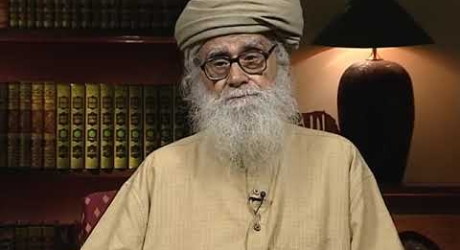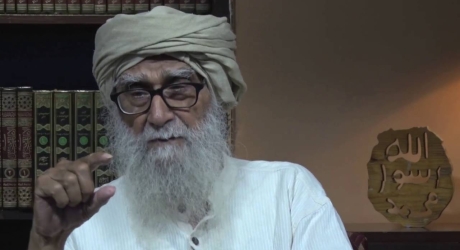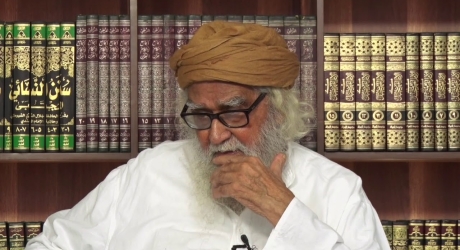The Quran, the preserved text of the divine message for all, states: “Each Messenger We have sent has spoken in the language of his people so that he might make the message clear to them.” (14:4). Therefore, translations of the Quran need to be made available in all languages. The translations must be easy-to-read and in contemporary style. Maulana Wahiduddin Khan gave CPS International and Ambassadors of Peace the target to make translations of the Quran in all major national and international languages and distribute them worldwide.
Commentaries of the Quran serve the single purpose of helping people understand the deeper meaning of the Quranic verses. Maulana’s commentary of the Quran, entitled Tazkirul Quran, is a concise, easy-to-read guide and enables its readers to understand the more profound and spiritual meaning of the Divine Book and reflect upon its relevance in the present world. It focuses on God’s Realisation, enlightenment, closeness to God, remembrance, prayer, peace, and spirituality.
Tazkirul Quran Commentary highlights the spiritual meaning of the Quran. It enables today’s readers to understand the Divine book’s deeper meaning and reflect upon its relevance in the present world. It reminds Muslims of their responsibility of communicating God’s message to all humanity with love, compassion, and well-wishing. It helps the reader to discover the Creator through reflection, deep thinking, and contemplation. By connecting with God, developing a strong affection for Him, and understanding its deeper meaning, one starts receiving divine wisdom from the Quran for leading one’s life in the world. The Quran, thus, helps one remember the Hereafter, introspect on one’s thoughts, speech, and action, and start the process of tazkiyah to develop a purified personality that God may find eligible for entry into Paradise.
Featured Articles
Featured Videos
FAQs
The Quran is a book of God revealed to the Prophet Muhammad. It did not come to him in the form of a complete book but in parts over a period of 23 years. The first part was revealed in 610 AD when the Prophet Muhammad was in Makkah. Subsequently, different parts continued to be revealed regularly, the final part being revealed in 632 AD when the Prophet was in Madinah.
There are 114 chapters in the Quran, both long and short. The verses number about 6600. To meet the needs of recitation, the Quran was divided into 30 parts. These parts were finally set in order under the guidance of the Angel Gabriel, through whom God had revealed the Quran.
When the Quran was revealed in the first quarter of the 7th century, paper had already been invented. This paper, known as papyrus, was made by hand from the fibres of certain trees. Whenever any part of the Quran was revealed, it was written down on papyrus, or in Arabic, qirtas (6:7). During this process, people committed the verses to memory, the Quran being the only Islamic literature which was recited in prayer, as well as being read out for the purposes of da‘wah. In this way, the Quran continued to be simultaneously memorized as well as written down. This method of preservation continued during the lifetime of the Prophet Muhammad. In this way, the Quran was preserved during the lifetime of the Prophet.
The third caliph, ‘Uthman ibn ‘Affan, had several copies prepared. He sent these to different cities, where they were kept in the great mosques. People not only recited from these copies, but also prepared more copies from them.
The writing of the Quran by hand continued till the printing press was invented and paper began to be manufactured on a large scale, thanks to the industrial revolution. Then, the Quran began to be printed. Printing methods went on improving and so the printing of the Quran also improved. Now printed copies of the Quran have become so common that they can be found in every home, mosque, library, and bookstore. Today anyone can find a beautiful copy of the Quran, wherever he might be, in any part of the globe.
Source: The Quran (Introduction)
The Quran is the Book of God. It has been preserved in its entirety for all time to come. Although written originally in Arabic, it has been made accessible, thanks to translations, to those who have no knowledge of Arabic. While no substitute for the original, translations serve the signal purpose of spreading the word of God far beyond the Arabic-speaking peoples to a far broader spectrum of humanity.
The Quran is apparently in the Arabic language, but in reality, it is in the language of nature, that is, the language in which God directly addressed all human beings at the time of Creation. This divine invocation of humanity is ever-present in the consciousness of all human beings, that is why the Quran is universally understandable—to some on a conscious plane, and to others at the subconscious level. This reality has been described in the Quran as ‘clear revelations in the hearts of those who have been given knowledge.’ This verse goes on to say that ‘none deny Our revelations save the wrongdoers’ (29:49). In this way the translations of the Quran help people who do not know Arabic to understand its meaning.
Source: The Quran (Introduction)
The Quran says, ‘Recite the Quran slowly and distinctly.’ (73:4) This means, read the Quran in slow, measured rhythmic tones. That is, read, paying full attention to the import of the content. When read like this, a two-way process between Quran and its reader comes into play. For him, the Quran is an address or speech by God and his heart starts answering this address at every verse. In the Quran where there is any mention of God’s majesty, the reader’s entire existence is strongly affected by the realisation of His greatness. When God’s blessings are enumerated in the Quran, the reader’s heart overflows with gratitude; when God’s retribution is described in the Quran, the reader trembles on reading it; when an order is laid down in the Quran, the feeling becomes intensified in the reader that he should become the obedient subject of his Lord by carrying out that order.
Source: The Quran (Introduction)
If non-Muslims have a genuine excuse, they can rely on translations but, if they have no excuse, then they must try to learn Arabic, at least to the extent that they are able to understand the basic meaning of the Quran.
Source: The Seeker’s Guide





